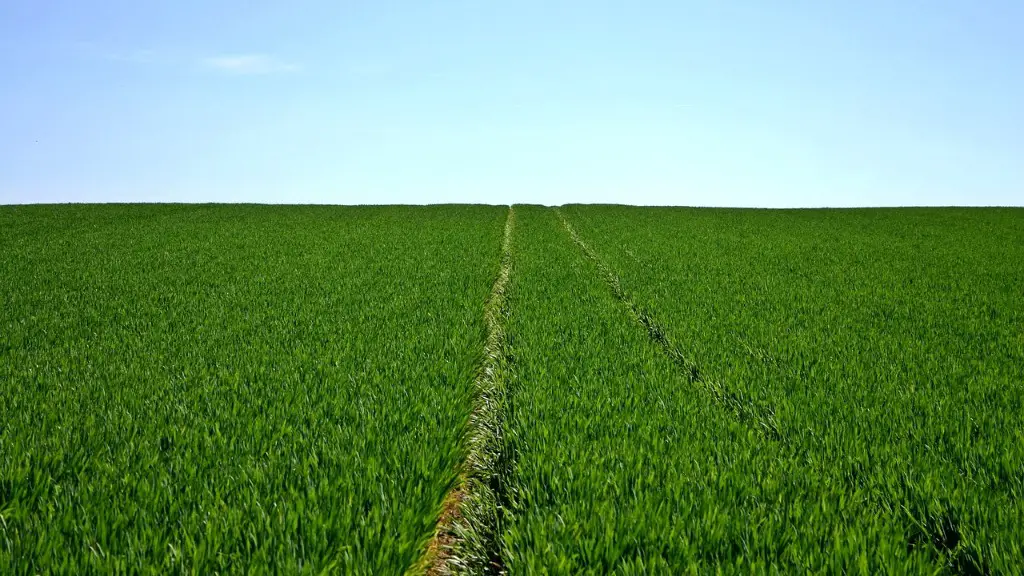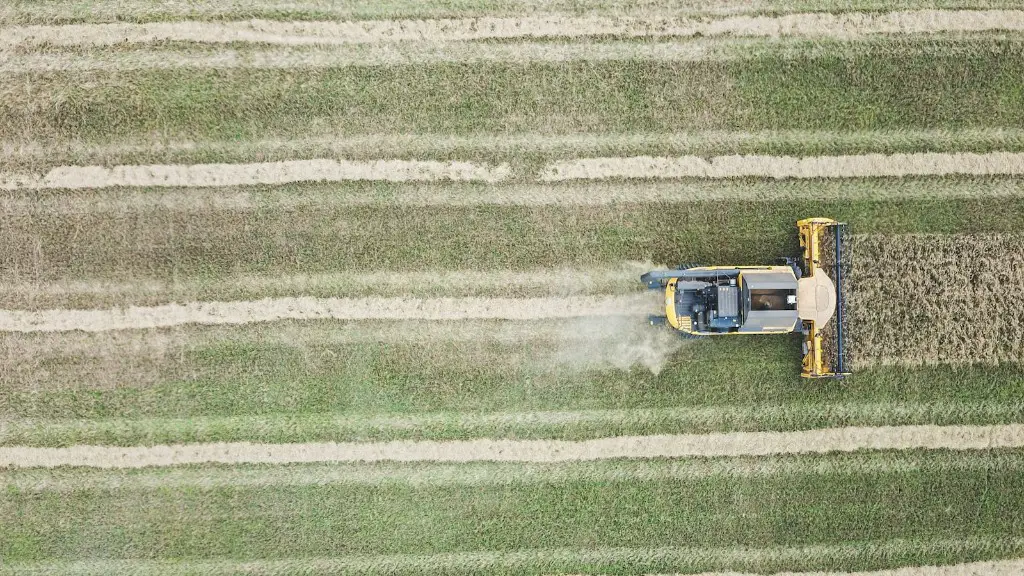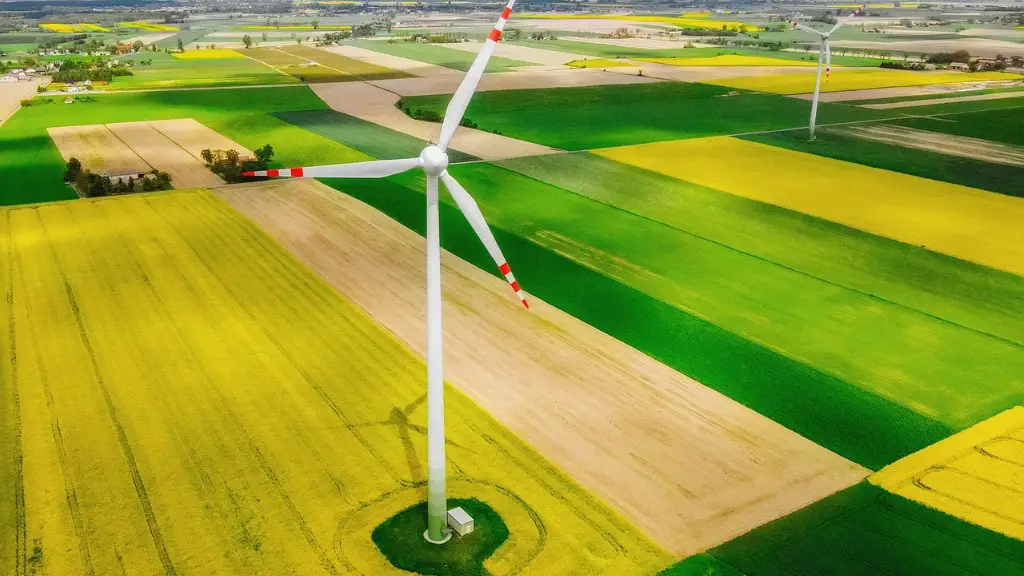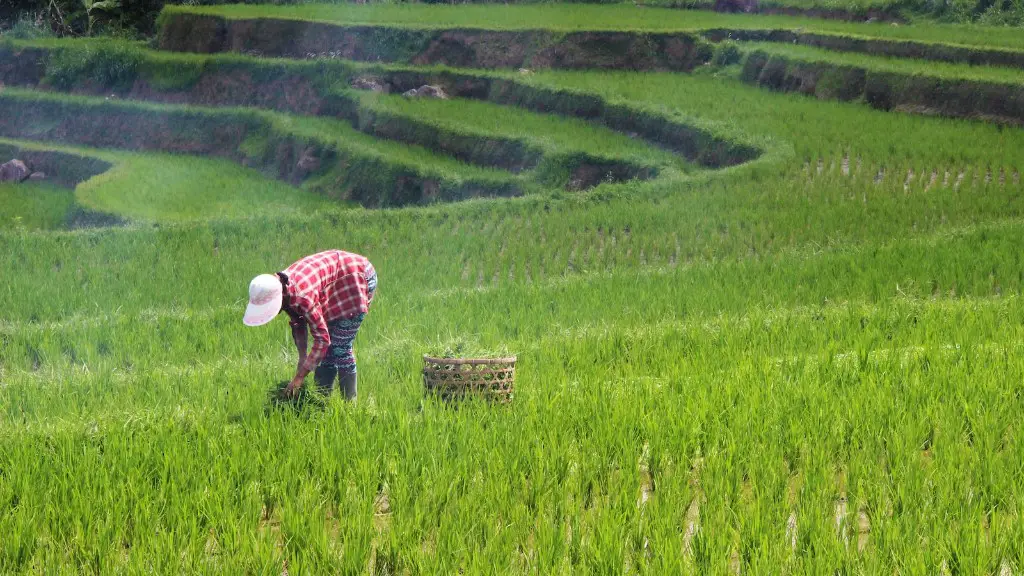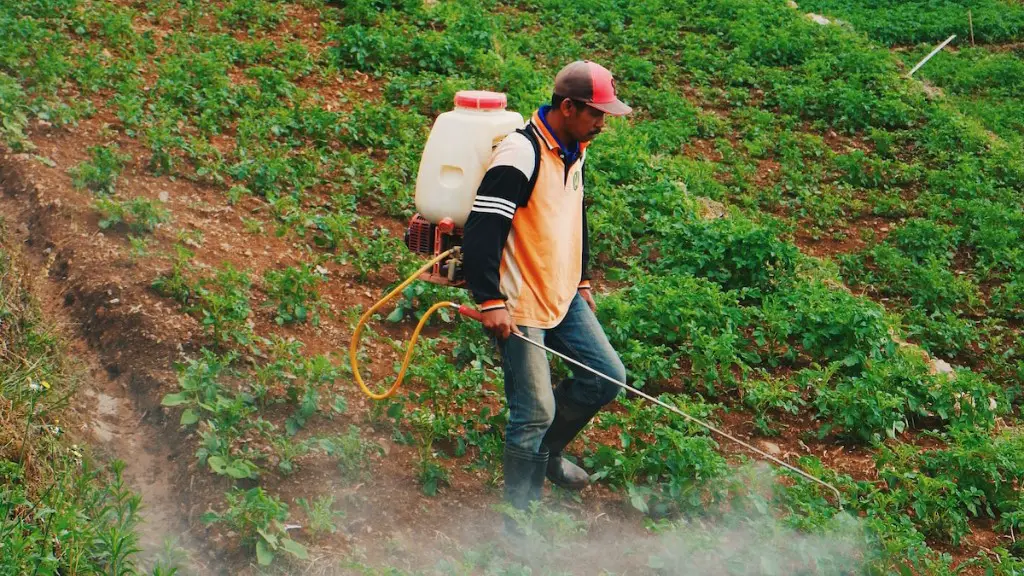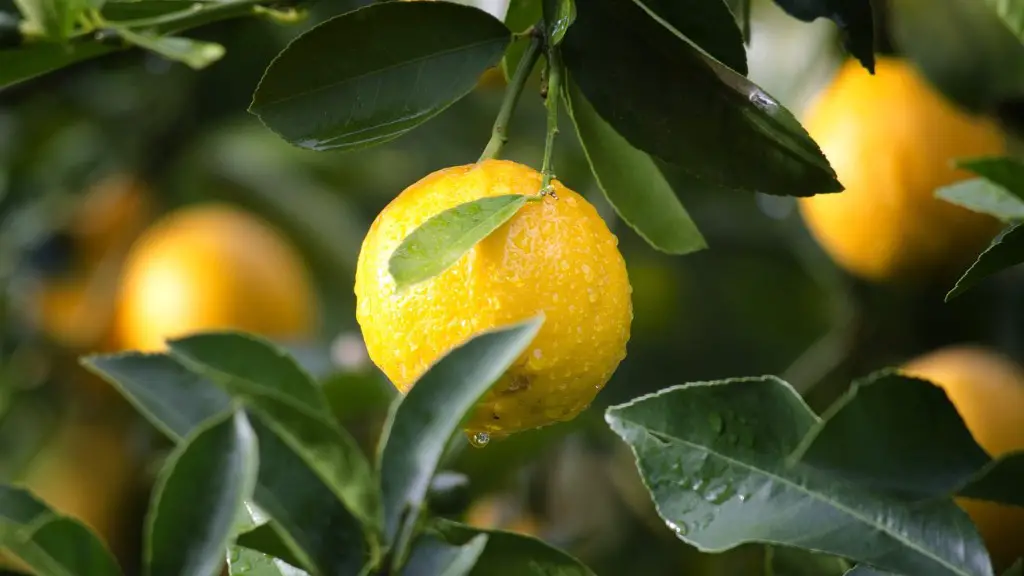Agriculture has a substantial and complex impact on biodiversity. On one side, it can benefit the conservation of certain species by providing optimal physical and biotic conditions that favor their growth. On the other hand, agricultural activities can produce negative effects such as the loss of natural habitats, reduced soil fertility and so on.
Farming and grazing animals can reduce the amount of land available for other wildlife species, leading to decreased diversity and abundance of organisms. In addition, traditional agronomic practices, such as monoculture, increases the use of chemical inputs, which can have adverse effects on soil life and landscape integrity.
Also, the fragmentation of land that occurs during the development of large-scale systems plays a major role in modifying habitats for the surrounding wildlife ecology, as farming equipment may take up space that can be used for habitat shelter. For example, the introduction of livestock may pose a problem for species that require a vegetative cover or a particular set of resources to thrive.
Agricultural crops can also indirectly affect wild species, particularly through the soil fertility. Over-intensification of agricultural systems can lead to soil depletion, thus reducing the ability of wild species to thrive. In addition, certain intensive farming practices, such as the use of heavy machinery, can destroy natural habitats, making them unsuitable for flora and fauna that rely on them.
The introduction of certain crops, such as GM crops, has been linked to the decline of wild species. These crops are designed to be tolerant to certain herbicides and pesticides, which can severely damage native species. In addition, the introduction of non-native species in conventional or organic systems can lead to competition for resources and often leads to the displacement of native species.
Overall, it is clear that agriculture affects biodiversity significantly, in both direct and indirect ways. Therefore, it is critical for us to seek ways to minimize the negative effects of agricultural practices, while still allowing for the growth and productivity of crops.
Impact on Species Composition
Agriculture can have an important impact on species composition and diversity of flora and fauna. Changes in land use and agro-ecosystem management can lead to changes in population dynamics, resource availability and food webs, all of which can lead to the expansion of some species, while reducing the potential of other species. Changes in habitat structure can also limit select population sizes, leading to a decrease in species diversity.
Intensification of agriculture leading to simplification of the agro-ecosystem, such as the introduction of monocultures, can also have detrimental effects on biodiversity, as this process can reduce the complexity of the system. While monocultures may maximize yields, they also decrease the chances of species coexistence, as species that rely on the complexity of the agro-ecosystem will not be able to survive in such systems.
The introduction of alien species, either deliberately or accidentally, can also have a profound effect on species composition and diversity. Introducing exotic species can disrupt local food webs or cause competition among native species, increasing the risk of species decline or extinction. There is a particular risk of alien species becoming invasive, which can also have a long-term impact on biodiversity levels.
Agricultural activities can also have an impact on the genetic makeup of species and the evolution of new species. Selective breeding over the years has caused the gradual and progressive evolution of certain species, making them more suited to the needs of the agricultural systems. This phenomenon has had an important impact on species composition and biodiversity levels, as the evolution of certain species can displace native species.
On a global level, agriculture is one of the most important drivers of biodiversity loss, as it has caused a dramatic shift in the composition of species, their relative abundance and the structure of their habitats. Understanding the specific impacts of agriculture and seeking ways to reduce its negative effects is essential for preserving biodiversity and ecosystem health.
Impact on Cultural Diversity
In addition to affecting species composition and genetic diversity, agriculture can also have an important impact on the cultural diversity of a region. As agricultural systems grow increasingly complex, they tend to become more specialized, which means they rely on the specific knowledge and practices that has been accumulated over generations. As farming systems become more specialised, they start to encroach upon the traditional knowledge of local populations, leading to the gradual erosion of local cultures.
In addition, the intensification of agricultural systems can have a negative impact on traditional land management practices and could even lead to the displacement of people who rely on the land for their livelihoods. This situation, combined with the displacement of species, can create a crisis of identity for local populations, leading to a gradual loss of culture and knowledge.
It is also possible for farming systems to become too specialized, leading to an increased reliance on agrochemicals and technological inputs that can have a detrimental effect on the environment and people’s health. This can result in a vicious cycle of ecological destruction, as the reliance on agrochemicals increases, leading to further destruction of the environment.
In addition, the use of industrial farming methods, such as large-scale monoculture, has been linked to the destruction of traditional knowledge and cultures that have developed around certain land types. As farming systems become increasingly specialized, traditional knowledge often gets lost in the process, leading to a reduction in cultural diversity and the destruction of certain traditional techniques of land management.
Overall, it is important to remember that agriculture can have a profound impact on cultural diversity, both through its positive and negative effects. By recognizing and preserving traditional knowledge and practices, we can ensure that sustainable farming methods are set in place, helping to preserve local cultures and ensure that biodiversity levels are maintained.
Impact on Aesthetic Quality
Agriculture can also have an important impact on the aesthetic quality of a landscape. Traditional agricultural systems, such as mixed farming systems, used to be characterized by a diverse mixture of vegetation, providing a more diverse landscape. However, as farming systems become more specialised, they generally become more uniform, leading to a decrease in the aesthetic beauty of a landscape.
In addition, the introduction of monoculture cropping systems have led to the homogenisation of landscapes, as large plots of land are planted with the same crop, thus reducing the variety of colours and shapes in the environment. This makes agricultural landscapes less appealing to the eye and can lead to a feeling of monotony when people visit them.
The use of agrochemicals can also have a major impact on the aesthetic quality of a landscape, as chemicals can damage vegetation and lead to a decrease in natural habitats. Also, water contamination caused by agrochemicals can cause a decrease in visual quality, as certain species may no longer be able to survive due to the chemical pollution.
Grazing animals can also have an important impact on the aesthetic quality of a landscape. In the absence of natural predators, these animals can reduce the amount of vegetation and lead to an increased fragmentation of the land. This could lead to a reduction in biodiversity, as certain species may no longer be able to survive in such lanscape.
In conclusion, it is clear that agriculture can impact the aesthetic quality of a landscape, in a variety of ways. Therefore, it is important for us to ensure that farming systems are managed in the most sustainable way, in order to maintain the aesthetic quality of our landscapes.
Impact on Water Quality
Finally, agriculture can have an important impact on water quality. With the intensification of farming systems, the amount of agrochemicals being used to increase production has increased significantly, leading to the contamination of rivers, streams and groundwater with nitrates, pesticides and other chemicals.
In addition, the use of large-scale runoff irrigation can lead to an increase in runoff and erosion, leading to the seepage of contaminants into ground and surface water systems. The accumulation of agrochemicals in water systems can be toxic to fish and other aquatic life, leading to a decrease in population sizes and a reduction in the biodiversity of aquatic species.
The introduction of alien species and the spread of invasive species through connected water systems can also have a major impact on water quality and lead to an increase in the nutrient levels of the water. This can often lead to the accumulation of algae and other aquatic weeds, leading to higher levels of turbidity and decreased oxygen levels.
Finally, farming systems can also contribute to the accumulation of sediment in water systems, as agricultural activities can increase the amount of runoff into rivers and streams, leading to an increased sediment load. This can have a major impact on water quality, as it can reduce the transparency of the water and lead to the growth of algae, leading to oxygen depletion and further harm to aquatic species.
In conclusion, it is clear that agriculture impacts water quality in a variety of ways. Therefore, it is essential for us to find ways to ensure that agricultural systems are managed in a sustainable way, in order to reduce the impacts on water quality, and ensure that aquatic wildlife is protected.
